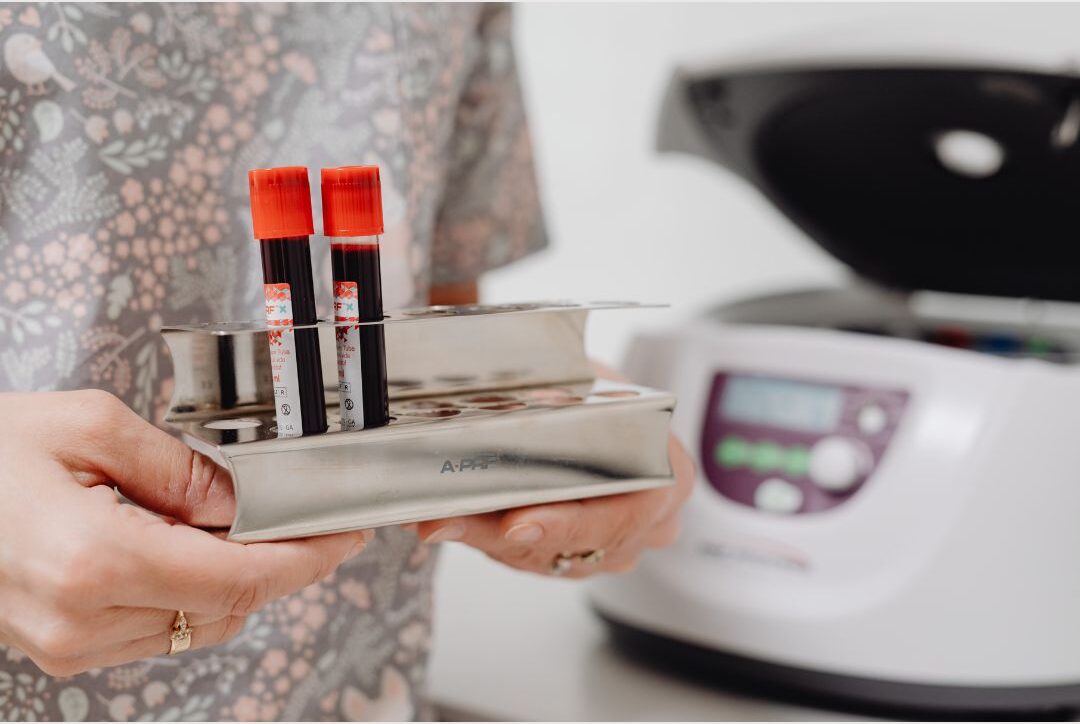Emerging Blood-Based Biomarkers for Alzheimer’s Diagnosis

Alzheimer’s disease remains one of the most challenging neurodegenerative conditions to diagnose early and accurately. Traditional diagnostic methods often rely on brain imaging or cerebrospinal fluid analysis both effective but invasive and costly. Recent breakthroughs in blood-based biomarkers are transforming this landscape, offering a simpler, faster, and more accessible route to early detection. Let’s explore how these biomarkers are revolutionizing Alzheimer’s diagnosis and what the future holds.
Understanding Blood-Based Biomarkers
Blood-based biomarkers are measurable biological indicators in the bloodstream that reflect underlying disease processes in the brain. In Alzheimer’s disease, these biomarkers typically correspond to the buildup or activity of proteins like amyloid-beta (Aβ) and tau, which are central to the disease’s progression.
Traditionally, detecting these proteins required a spinal tap or advanced imaging techniques such as PET scans. Both are expensive and not always feasible for large-scale screening. Blood-based biomarkers, however, allow clinicians to detect similar disease signatures through a simple blood draw making Alzheimer’s testing more accessible, less invasive, and potentially suitable for early screening even before symptoms appear.
Recent research has identified several promising blood markers, including plasma p-tau181, p-tau217, Aβ42/40 ratio, and neurofilament light chain (NfL). These molecules show strong correlations with Alzheimer’s pathology, helping distinguish it from other forms of dementia with increasing accuracy.

Advantages of Early Detection Through Blood-Based Testing
Early detection of Alzheimer’s disease offers profound benefits. Detecting abnormalities in blood-based biomarkers long before cognitive decline begins could enable earlier intervention, when lifestyle adjustments, medications, or clinical trial participation may have the most impact.
Blood-based testing is less invasive, requiring only a standard blood sample rather than cerebrospinal fluid extraction. It’s also more scalable, opening doors for population-wide screening and routine health checks. This accessibility could bridge the gap between symptom onset and diagnosis, which currently can take years.
Moreover, blood biomarkers are useful for monitoring disease progression and evaluating treatment response. As new therapies targeting amyloid and tau emerge, clinicians will need reliable, cost-effective tools to track biochemical changes over time. Blood-based biomarker testing could serve as a cornerstone for personalized Alzheimer’s management, aligning care with individual disease trajectories.
Tests Available for Clinical Use (LDT and IVD)
Novalab Corp offers an advanced suite of Laboratory Developed Tests (LDT) and In Vitro Diagnostic (IVD) assays for Alzheimer’s research and clinical use. These tests enable early detection, disease monitoring, and risk stratification, bringing precision diagnostics closer to patients and providers.
- Plasma p-Tau 217 – Detects phosphorylated tau protein associated with early Alzheimer’s pathology; a strong indicator of neurofibrillary tangle development.
- Plasma Nf-L (Neurofilament Light Chain) – Measures neuronal damage and degeneration, reflecting axonal injury across various neurodegenerative disorders.
- CSF Aβ42/40 Ratio – Evaluates the balance of amyloid-beta peptides in cerebrospinal fluid, providing key insights into amyloid plaque formation in the brain.
- Serum Nf-L – A blood-based measure of neurofilament light chain, offering a less invasive alternative for tracking neuronal damage over time.
- CSF t-Tau (Total Tau) – Assesses total tau protein levels to indicate the overall extent of neuronal injury or neurodegeneration.
- CSF p-Tau 181 – Detects specific tau phosphorylation changes linked to Alzheimer’s, aiding in differential diagnosis from other dementias.
- CSF Nf-L – Provides a sensitive measure of axonal injury within the central nervous system, complementing other CSF biomarkers.
- APOE Genotyping – Identifies genetic variants of the APOE gene, particularly APOE ε4, known to increase Alzheimer’s disease risk and influence disease progression.
These clinical assays enhance early diagnostic precision and guide patient-specific management strategies, supporting proactive neurological care.
The Future of Alzheimer’s Diagnostics
As the research deepens, blood-based biomarkers are expected to become part of standard diagnostic panels. Combining them with genetic and imaging data could refine predictive accuracy even further.
Emerging technologies like machine learning are helping researchers analyze biomarker data patterns, uncovering subtle signatures of disease years before symptoms arise. Large-scale studies are also validating these tests across diverse populations, ensuring reliability regardless of age, ethnicity, or comorbid conditions.
Beyond detection, these biomarkers are likely to aid in precision medicine tailoring prevention and treatment plans to each individual’s biology. They may also support routine wellness testing, allowing proactive screening for those at higher risk of cognitive decline.
Still, challenges remain. Standardization of assays, regulatory approvals, and integration into clinical workflows are ongoing. As with any new diagnostic frontier, ensuring accuracy, affordability, and accessibility will be key to widespread adoption.

Novalab Corp Innovation
The discovery of blood-based biomarkers marks a new era in Alzheimer’s care shifting focus from late-stage diagnosis to early detection and proactive management. By making testing more accessible and less invasive, these innovations could change how clinicians and families approach cognitive health.
For individuals and healthcare providers seeking advanced laboratory testing and biomarker analysis, Novalab Corp offers cutting-edge diagnostic solutions designed to detect subtle biological changes long before symptoms appear. With a commitment to scientific precision and patient-centered innovation, Novalab Corp empowers you to take charge of your neurological health and make informed decisions for the future.
